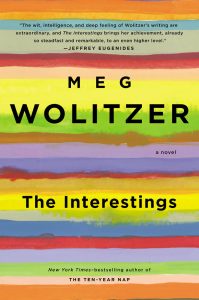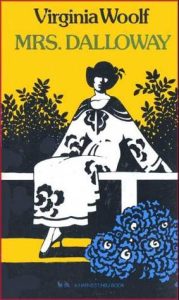Many thanks to friend and fellow writer Ellen Harger for including my thoughts on book clubs at her lovely blog! The following post was first published there on July 27 of this year. Here, I’ll suggest some answers to the perennial question, “What makes a great read?” I’m always looking for a book that people will love to discuss as a group.
 I’ve attended book clubs in Washington state, Ohio, Idaho, and elsewhere. For the most part, it’s been a wonderful experience with dedicated people discussing contemporary literature. When a group sacrifices their usual weeknight duties to gather and share ideas, I always like to see socializing kept to its own timeframe (before or after discussion). And it’s great when everyone makes an effort to stay on-topic! ;-D
I’ve attended book clubs in Washington state, Ohio, Idaho, and elsewhere. For the most part, it’s been a wonderful experience with dedicated people discussing contemporary literature. When a group sacrifices their usual weeknight duties to gather and share ideas, I always like to see socializing kept to its own timeframe (before or after discussion). And it’s great when everyone makes an effort to stay on-topic! ;-D
Looking back on the best club meetings I’ve attended, I notice two factors, either of which makes for lively conversation:
- Controversy! It’s no surprise that people get passionate about sharing their opinions. In the book-club context, controversy tends to come in two varieties: social or personal. By social, I mean related to societal issues, and by personal, I mean our interpretations of a book’s characters and events. More on these below.
- Subject matter that enjoys a buzz around the time your club meets. This is hard to plan for, but buzz certainly inspires active discussion. What’s less obvious is that older books, including classics, may work as well as new releases, by serendipity.
- When these two factors coincide, as they did in the first example below, you’re in for an especially dynamic evening!
Book-clubbers tend to take considerable interest in current events and issues. That’s often why they join the group. And books can provide a unique avenue for engaging with controversial subjects. Hopefully, a degree of detachment—since we’re talking literature rather than politics or religion—will allow for airing all sides in a receptive atmosphere.
Sometimes it’s helpful to remind people of that!
My group in Moscow, Idaho, scheduled a meeting on Meg Wolitzer’s novel, The Interestings (2013). It’s a popular book about a group of high school friends that remain close into middle age and pass many milestones together. Who knew this would become an excellent vehicle for discussing the American health care system?
 In The Interestings, the main character’s husband suffers from treatment-resistant depression. His illness periodically becomes severe, requiring hospitalization. Although medical insurance is not a key topic of the book, it had recently been all over the news with portions of the Affordable Care Act being hotly debated. At the time the novel takes place, major depression was a pre-existing medical condition that could lead to skyrocketing insurance costs or even denial of coverage.
In The Interestings, the main character’s husband suffers from treatment-resistant depression. His illness periodically becomes severe, requiring hospitalization. Although medical insurance is not a key topic of the book, it had recently been all over the news with portions of the Affordable Care Act being hotly debated. At the time the novel takes place, major depression was a pre-existing medical condition that could lead to skyrocketing insurance costs or even denial of coverage.
While the fictional couple deals with this problem over the years, they struggle to maintain a middle-class lifestyle. The cost of living in the New York metropolitan area becomes prohibitive. Their friendship with other characters from younger days turns awkward as the latter attain astronomical financial success.
One reader in our group shared a strong opinion: “How could the poor guy not get depressed when that other couple flaunts their wealth? Vacation homes, trips, servants – and he’s supposed to grin and bear it on 65K per year.”
Others raised the issue of lost productivity due to illness. Some focused on the privileges of inherited wealth. Still others saw a tendency for the rich characters to exploit the struggling couple’s loyalty. With the novel’s many relationships as touchstone, we managed to talk about “Obamacare” without straying too far from our book.
And without losing any friends in the process!
 Another terrific discussion took flight around a more personal controversy: members’ interpretations of a key character in Anita Shreve’s The Weight of Water (1997). This is a historical fiction/mystery novel that’s tough to summarize without spoilers. Suffice it to say that I’m a big fan of the book and found myself drawn into the plight of a Norwegian immigrant’s bleak existence. Shreve’s interweaving of this tale from the 1870s with a modern woman’s discovery of a wrongly punished crime is nothing short of masterful.
Another terrific discussion took flight around a more personal controversy: members’ interpretations of a key character in Anita Shreve’s The Weight of Water (1997). This is a historical fiction/mystery novel that’s tough to summarize without spoilers. Suffice it to say that I’m a big fan of the book and found myself drawn into the plight of a Norwegian immigrant’s bleak existence. Shreve’s interweaving of this tale from the 1870s with a modern woman’s discovery of a wrongly punished crime is nothing short of masterful.
Some of our club members found Maren, the Norwegian heroine, believable and highly sympathetic. By contrast, an equal number felt that she was the worst kind of sociopath: always seeking pity for herself while dismissing the humanity of others. A few took the position that Shreve’s portrayal of Maren was flat and implausible: a mere pawn of the plot who inspired little confidence and less compassion.
But even those who disliked Maren and her role in the story enjoyed this gripping book and our intense discussion!
As mentioned above, The Interestings was a lucky case of controversy and topical subject matter dovetailing in a contemporary book. Another excellent discussion that played off news reports sprang up when we read a book published nearly 90 years earlier: Virginia Woolf’s Mrs. Dalloway (1925).
 Mrs. Dalloway enjoyed a rediscovery at the turn of this century thanks to Michael Cunningham’s acclaimed novel, The Hours (1998) and the Oscar-winning film based upon it (2002). My club happened to schedule Woolf’s modernist classic in 2012. Our discussion was memorable, although not one of our happiest.
Mrs. Dalloway enjoyed a rediscovery at the turn of this century thanks to Michael Cunningham’s acclaimed novel, The Hours (1998) and the Oscar-winning film based upon it (2002). My club happened to schedule Woolf’s modernist classic in 2012. Our discussion was memorable, although not one of our happiest.
The meeting was held several weeks after the New York Times ran an article revealing that deaths from suicide among soldiers returning from Iraq and Afghanistan had surpassed those dying in battle. Two of our members had read the article and wound up taking the discussion in that direction. They emphasized that Woolf’s fiction hinges on the death of a WWI veteran suffering from what was then termed “battle fatigue.”
It was a challenging but enlightening discussion that touched on current events as well as history. We all felt that we learned from each other’s views. One friend was even inspired to share her feelings about the suicide of a family member several years before. This proved cathartic for her and deeply moving for the rest of our group.
These memorable evenings go to show the power of literature to shine a light on matters that deserve thought and attention. Conversation plays an essential role in building our understanding of events and people – even those we thought we already knew.
